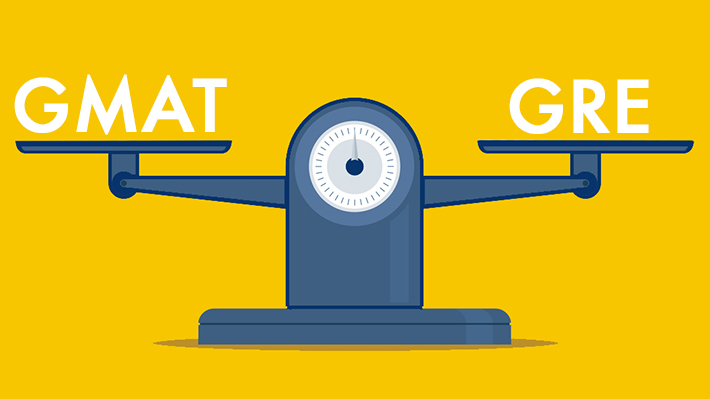Key Components for Overseas Education Loan Process
Are you dreaming of pursuing higher education abroad but concerned about the financial hurdles? Fret not, as the journey to your international academic aspirations can be paved with the assistance of study abroad loans. With the right knowledge and preparation, securing an international education loan can become a manageable process. Let's delve into the key components of the overseas education loan process to help you embark on your educational journey confidently.
1. Understanding Study Abroad Loans:
Studying abroad opens up a world of opportunities, but it often comes with a hefty price tag. This is where study abroad loans, also known as international education loans, come into play. These financial tools are specifically designed to support students who wish to pursue higher education outside their home country. Whether you're eyeing a prestigious university in the United States, Europe, Australia, or any other destination, study abroad loans can help bridge the gap between your aspirations and financial reality.
2. Choosing the Right Lender:
Selecting the best bank for an education loan is a crucial step in the process. With a plethora of financial institutions offering study abroad loans, it's essential to conduct thorough research and compare your options. Look beyond just interest rates; consider factors such as loan terms, repayment options, processing fees, and customer service quality. Opt for a lender that specializes in international education loans and has a proven track record of assisting students in achieving their academic goals.

Seeking Direction?
Allow Us To Assist You.
3. Required Documents:
The journey towards securing an international education loan begins with gathering the necessary documentation. These typically include:
- Proof of admission to a recognized foreign university or institution
- Completed loan application form provided by the lender
- Academic transcripts, certificates, and standardized test scores (such as SAT, ACT, GRE, or GMAT)
- Proof of identity and residence (passport, driver's license, utility bills, etc.)
- Income proof of co-borrower/guarantor (if required)
- Collateral documents (if applicable), such as property deeds or fixed deposit certificates
Ensure all documents are authentic, complete, and up-to-date to expedite the loan approval process.
4. Eligibility Criteria:
Each bank or financial institution sets its own eligibility criteria for education loans. While specific requirements may vary, common factors considered include academic performance, chosen course of study, co-borrower/guarantor's financial stability, and repayment capacity. It's essential to review and fulfill these criteria to increase your chances of loan approval.
5. Loan Amount and Interest Rates:
The loan amount sanctioned typically covers various expenses associated with studying abroad, including tuition fees, living expenses, travel costs, and other academic-related expenditures. Interest rates vary depending on factors such as the lender, loan amount, repayment period, and prevailing market conditions. Compare interest rates offered by different lenders to secure the most competitive deal that aligns with your financial goals and capabilities.
6. Repayment Terms:
Understanding the repayment terms is crucial before committing to an international education loan. Repayment typically begins after the completion of the course or a specified grace period post-graduation. Explore repayment options such as fixed or flexible Equated Monthly Installments (EMIs), and consider factors like loan tenure, interest rate, and your financial situation to choose the most suitable option that ensures timely repayment without undue financial strain.
7. Loan Security:
In many cases, lenders may require collateral or a co-borrower/guarantor to secure the loan. Collateral could be in the form of property, fixed deposits, or any other valuable asset. Understand the implications and responsibilities associated with loan security before proceeding, and ensure you have a clear plan in place to meet your repayment obligations to avoid any adverse consequences.
8. Seek Expert Guidance:
Navigating the intricacies of the overseas education loan process can be overwhelming, especially for first-time applicants. Consider seeking guidance from experienced professionals such as financial advisors, education consultants, or alumni who have firsthand experience with study abroad loans. They can provide valuable insights, tips, and support to simplify the process, address any concerns or queries you may have, and ensure a successful loan application that sets you on the path to academic success abroad.
Conclusion:
Beginning your journey towards international education is an enriching experience that can shape your future significantly. With study abroad loans, financial constraints should not hinder your aspirations. By understanding the key components of the overseas education loan process and meticulous planning, you can turn your dream of studying abroad into a reality. Remember to research, prepare thoroughly, and seek guidance whenever needed to make informed decisions and embark on a successful academic journey abroad. We at GlobEDwise not only help students navigate the admission and visa processes but also provide comprehensive support and guidance with our Education Loan Assistance Program (ELAP) where our finance team meticulously work towards helping students get successful education loans from various partner financial institutions. So, what are you waiting for, to realize your dreams now without any constraints!!!
Frequently Asked Questions
Q. How do I apply to universities in Ireland for undergraduate or postgraduate programs?
Most universities in Ireland accept applications through the Central Applications Office (CAO) for undergraduate programs and directly through their websites for postgraduate programs. It's essential to check the specific requirements and deadlines for each institution and program you're interested in applying to.
Q. What are the language requirements for international students applying to universities in Ireland?
A. The language requirements vary depending on the institution and program. Generally, international students are required to demonstrate proficiency in English by providing scores from standardized tests such as the IELTS or TOEFL. Minimum score requirements may vary, so it's essential to check the specific requirements of the university and program you're interested in.
Q. Are there scholarships available for international students studying in Ireland?
A. Yes, many universities in Ireland offer scholarships and financial aid packages for international students. These scholarships may be merit-based, need-based, or specific to certain fields of study. Additionally, there are government-funded scholarships and external funding opportunities available for international students. It's advisable to research and apply for scholarships well in advance of your intended start date.
Q. Can I work while studying at a university in Ireland?
A. Yes, international students with a valid student visa are permitted to work part-time (up to 20 hours per week) during the academic term and full-time during scheduled breaks. Working while studying can provide valuable experience and help offset living expenses. However, it's essential to balance work commitments with academic responsibilities to ensure academic success.
Q. What support services are available for international students at universities in Ireland?
A. Universities in Ireland offer a range of support services to help international students adjust to life in Ireland and succeed academically. These services may include orientation programs, academic advising, counseling services, English language support, career guidance, and assistance with visa and immigration matters. Additionally, many universities have international student societies and clubs that provide opportunities for socializing and cultural exchange.






